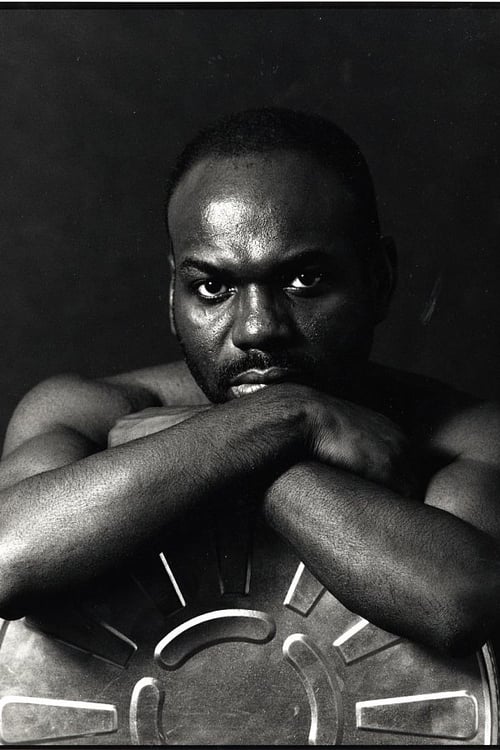Marlon Riggs
Nacimiento : 1957-02-03, Fort Worth, Texas, USA
Muerte : 1994-04-05
Historia
Marlon Troy Riggs (February 3, 1957 – April 5, 1994) was an American filmmaker, educator (professor), poet, and gay rights activist. He produced, wrote, and directed several television documentaries, including Ethnic Notions, Tongues Untied, Color Adjustment, and Black is... Black Ain't. Riggs created aesthetically innovative and socially provocative films that examine past and present representations of race and sexuality in America. The Marlon Riggs Collection is now housed at Stanford University Libraries.

Self
Incorporating archival material, revelatory verite footage, and clips from his own work, a documentary which chronicles the life and works of the black, openly gay filmmaker Marlon Riggs whose controversial body works exploded on the scene with his landmark 1989 film "Tongues Untied" (USA). Riggs specialized in films dealing mainly with African-American males and the nuances of sexuality as it relates to their cultural, religious, and social identity. A teacher and prolific documentarian, the outspoken artist, Riggs, eventually succumbed to an AIDS-related illness in 1994.

Self
Positive Men begins as a docudrama which illustrates the impact of the AIDS epidemic on gay men in the early 1980s. Memories of New York and San Francisco are the backdrop for seven dramatic scenes which designate the intersection of community support, medical science, and gay politics that emerged in response to the AIDS epidemic. Words and images from these scenes resonate throughout the documentary portraits which follow. The interviews, conducted in Toronto and San Francisco (1993-1994), feature artists, filmmakers, AIDS community workers, writers and volunteers who have made unique contributions within the cultural and community responses to AIDS.
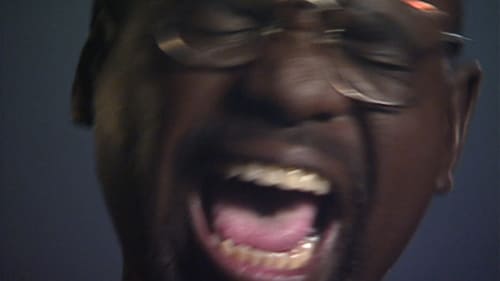
Self
Black Is ... Black Ain't es una mirada descaradamente franca y honesta, y en ocasiones humorística, sobre la identidad negra en Estados Unidos. En su proyecto final antes de perder su batalla contra el sida, el aclamado director Marlon Riggs desafía la definición tradicional de negritud al tiempo que hace un sonoro llamado a los afroamericanos para que celebren la diversidad dentro de la comunidad para que se pueda lograr el sueño de la unidad. Una crítica poderosa e inteligente del racismo, el sexismo y la homofobia, la película entrena un foco brillante sobre la exclusividad y rigidez de las instituciones negras de la familia, la iglesia y la comunidad.

Director
Black Is ... Black Ain't es una mirada descaradamente franca y honesta, y en ocasiones humorística, sobre la identidad negra en Estados Unidos. En su proyecto final antes de perder su batalla contra el sida, el aclamado director Marlon Riggs desafía la definición tradicional de negritud al tiempo que hace un sonoro llamado a los afroamericanos para que celebren la diversidad dentro de la comunidad para que se pueda lograr el sueño de la unidad. Una crítica poderosa e inteligente del racismo, el sexismo y la homofobia, la película entrena un foco brillante sobre la exclusividad y rigidez de las instituciones negras de la familia, la iglesia y la comunidad.

Director
In these sexy, fun and darkly entertaining boys shorts, we see the hilarious terrors of gay childhood, an Internet hook-up with unexpected motivation and what happens when you hate musicals. You might wonder if theres hope for a gay Lothario, and sometimes you'll see that when you go home, the end is just the beginning.

Producer
Five gay Black men who are HIV-positive discuss how they are battling the double stigmas surrounding their infection and homosexuality.

Writer
Five gay Black men who are HIV-positive discuss how they are battling the double stigmas surrounding their infection and homosexuality.

Director
Five gay Black men who are HIV-positive discuss how they are battling the double stigmas surrounding their infection and homosexuality.
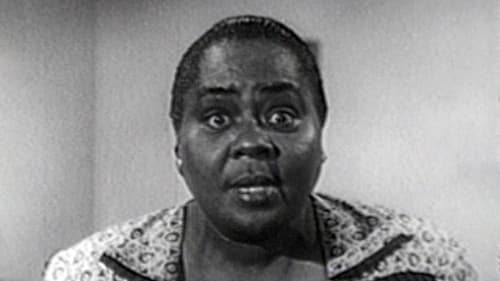
Producer
From Amos 'n' Andy to Nat King Cole, from Roots to The Cosby Show, black people have played many roles on primetime television. Brilliantly weaving clips from classic TV shows with commentary from TV producers, black actors and scholars, Marlon Riggs blends humor, insight, and thoughtful analysis to explore the evolution of black/white relations as reflected by America's favorite addiction.

Writer
From Amos 'n' Andy to Nat King Cole, from Roots to The Cosby Show, black people have played many roles on primetime television. Brilliantly weaving clips from classic TV shows with commentary from TV producers, black actors and scholars, Marlon Riggs blends humor, insight, and thoughtful analysis to explore the evolution of black/white relations as reflected by America's favorite addiction.

Director
From Amos 'n' Andy to Nat King Cole, from Roots to The Cosby Show, black people have played many roles on primetime television. Brilliantly weaving clips from classic TV shows with commentary from TV producers, black actors and scholars, Marlon Riggs blends humor, insight, and thoughtful analysis to explore the evolution of black/white relations as reflected by America's favorite addiction.

Self
The narrator/filmmaker is Peter Adair (Word is Out) and the disease is the HIV virus. Adair has asked 11 people — women and men, gay and straight, from all walks of life — to share their stories. Alternately irreverent, candid and soulful, this stirring film is not about being sick; it is about being true to the emotional complexity of being mortal.

A collage of erotic images and a call to arms, with a feverish hip-hop energy that celebrates the lives of African American men.

Producer
A collage of erotic images and a call to arms, with a feverish hip-hop energy that celebrates the lives of African American men.

Director
A collage of erotic images and a call to arms, with a feverish hip-hop energy that celebrates the lives of African American men.
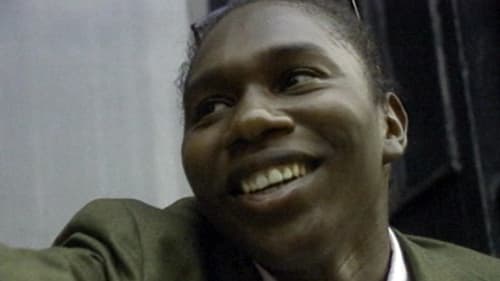
Producer
A look at what it's like to be gay and black in America.

Writer
A look at what it's like to be gay and black in America.

Director
A look at what it's like to be gay and black in America.
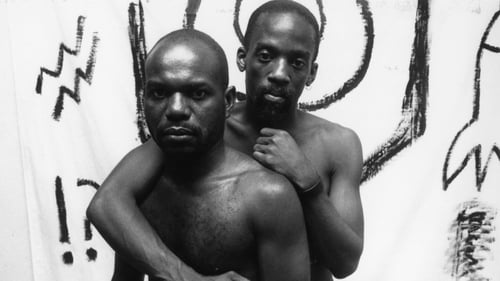
Director of Photography
Manifiesto-ensayo sobre la identidad afroamericana y gay que reivindica el amor entre hombres negros como un acto revolucionario. Convertido ya en un clásico de la no-ficción contemporánea por su estructura compleja, el uso de actores y de material de archivo, la inclusión de poemas recitados por el poeta Essex Hemphill y fragmentos autobiográficos del director, fue objeto de numerosos ataques en el Congreso de Estados Unidos y fue censurado en la televisión pública norteamericana.

Original Music Composer
Manifiesto-ensayo sobre la identidad afroamericana y gay que reivindica el amor entre hombres negros como un acto revolucionario. Convertido ya en un clásico de la no-ficción contemporánea por su estructura compleja, el uso de actores y de material de archivo, la inclusión de poemas recitados por el poeta Essex Hemphill y fragmentos autobiográficos del director, fue objeto de numerosos ataques en el Congreso de Estados Unidos y fue censurado en la televisión pública norteamericana.

Writer
Manifiesto-ensayo sobre la identidad afroamericana y gay que reivindica el amor entre hombres negros como un acto revolucionario. Convertido ya en un clásico de la no-ficción contemporánea por su estructura compleja, el uso de actores y de material de archivo, la inclusión de poemas recitados por el poeta Essex Hemphill y fragmentos autobiográficos del director, fue objeto de numerosos ataques en el Congreso de Estados Unidos y fue censurado en la televisión pública norteamericana.

Editor
Manifiesto-ensayo sobre la identidad afroamericana y gay que reivindica el amor entre hombres negros como un acto revolucionario. Convertido ya en un clásico de la no-ficción contemporánea por su estructura compleja, el uso de actores y de material de archivo, la inclusión de poemas recitados por el poeta Essex Hemphill y fragmentos autobiográficos del director, fue objeto de numerosos ataques en el Congreso de Estados Unidos y fue censurado en la televisión pública norteamericana.

Producer
Manifiesto-ensayo sobre la identidad afroamericana y gay que reivindica el amor entre hombres negros como un acto revolucionario. Convertido ya en un clásico de la no-ficción contemporánea por su estructura compleja, el uso de actores y de material de archivo, la inclusión de poemas recitados por el poeta Essex Hemphill y fragmentos autobiográficos del director, fue objeto de numerosos ataques en el Congreso de Estados Unidos y fue censurado en la televisión pública norteamericana.

Self
Manifiesto-ensayo sobre la identidad afroamericana y gay que reivindica el amor entre hombres negros como un acto revolucionario. Convertido ya en un clásico de la no-ficción contemporánea por su estructura compleja, el uso de actores y de material de archivo, la inclusión de poemas recitados por el poeta Essex Hemphill y fragmentos autobiográficos del director, fue objeto de numerosos ataques en el Congreso de Estados Unidos y fue censurado en la televisión pública norteamericana.

Director
Manifiesto-ensayo sobre la identidad afroamericana y gay que reivindica el amor entre hombres negros como un acto revolucionario. Convertido ya en un clásico de la no-ficción contemporánea por su estructura compleja, el uso de actores y de material de archivo, la inclusión de poemas recitados por el poeta Essex Hemphill y fragmentos autobiográficos del director, fue objeto de numerosos ataques en el Congreso de Estados Unidos y fue censurado en la televisión pública norteamericana.
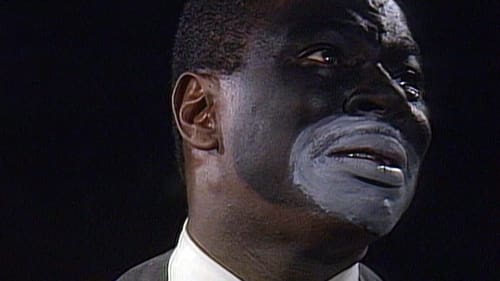
Writer
This documentary traces the deep-rooted stereotypes which have fueled anti-black prejudice.

Producer
This documentary traces the deep-rooted stereotypes which have fueled anti-black prejudice.

Director
This documentary traces the deep-rooted stereotypes which have fueled anti-black prejudice.

Camera Operator
Marlon Riggs and Peter Webster’s thesis project reflects on the heyday of Oakland blues in the late 1940s and ’50s, when an influx of African American shipyard workers mostly hailing from Louisiana and Texas arrived in the Bay Area. Combining vintage photographs, archival footage, interviews, and performances at venues like Eli’s Mile High Club, Riggs and Webster chronicle Oakland’s vibrant past while revealing an uncertain present.

Editor
Marlon Riggs and Peter Webster’s thesis project reflects on the heyday of Oakland blues in the late 1940s and ’50s, when an influx of African American shipyard workers mostly hailing from Louisiana and Texas arrived in the Bay Area. Combining vintage photographs, archival footage, interviews, and performances at venues like Eli’s Mile High Club, Riggs and Webster chronicle Oakland’s vibrant past while revealing an uncertain present.

Producer
Marlon Riggs and Peter Webster’s thesis project reflects on the heyday of Oakland blues in the late 1940s and ’50s, when an influx of African American shipyard workers mostly hailing from Louisiana and Texas arrived in the Bay Area. Combining vintage photographs, archival footage, interviews, and performances at venues like Eli’s Mile High Club, Riggs and Webster chronicle Oakland’s vibrant past while revealing an uncertain present.

Writer
Marlon Riggs and Peter Webster’s thesis project reflects on the heyday of Oakland blues in the late 1940s and ’50s, when an influx of African American shipyard workers mostly hailing from Louisiana and Texas arrived in the Bay Area. Combining vintage photographs, archival footage, interviews, and performances at venues like Eli’s Mile High Club, Riggs and Webster chronicle Oakland’s vibrant past while revealing an uncertain present.

Director
Marlon Riggs and Peter Webster’s thesis project reflects on the heyday of Oakland blues in the late 1940s and ’50s, when an influx of African American shipyard workers mostly hailing from Louisiana and Texas arrived in the Bay Area. Combining vintage photographs, archival footage, interviews, and performances at venues like Eli’s Mile High Club, Riggs and Webster chronicle Oakland’s vibrant past while revealing an uncertain present.
